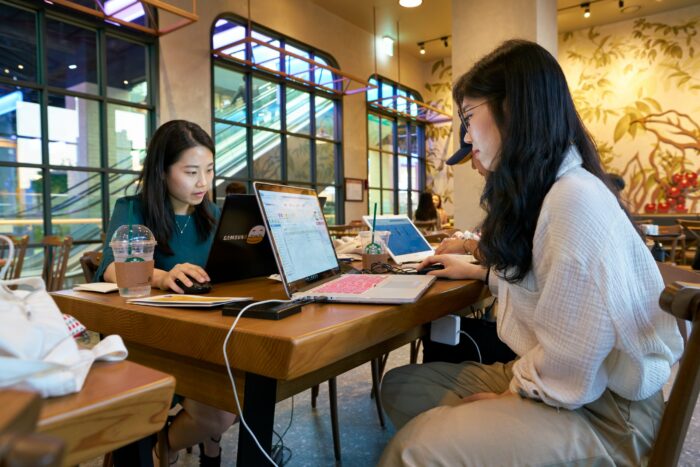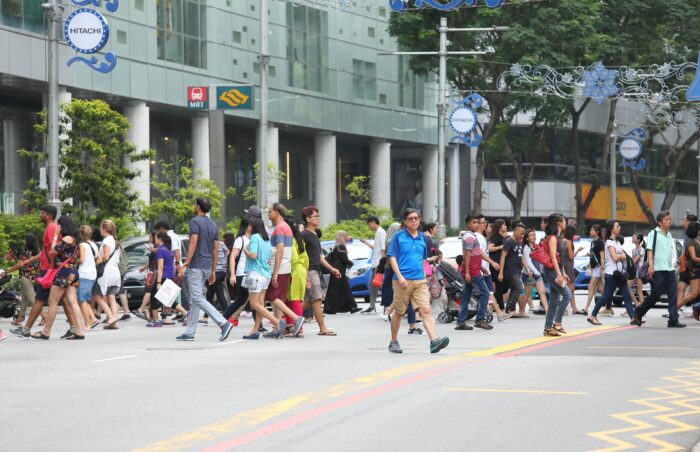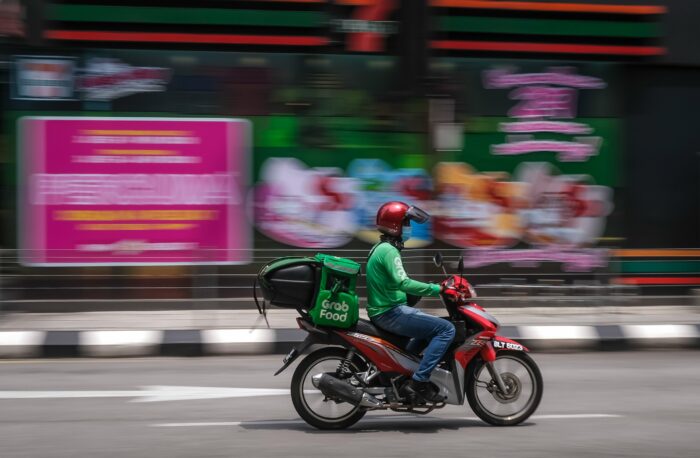Clear communication key to address gender equality issues

Recognising that women have the right to equality should be stemmed within society, and this can be achieved through conversations.
South Korea urged to support women’s return to workforce

More must be done to inncrease female labour force participation, which is crucial to boost economic growth, says the IMF.
Could hybrid working hold back women’s careers?

Female employees who choose flexible hours or work from home may risk missing out on opportunities through in-person interaction
Young people dropping off South Korea’s permanent workforce

More South Korean workers in their 20s are staying idle amid poorer employment conditions or are engaged in temporary employment.
Remote work does not impede career progression

Instead of mandating a return to office, Dell is letting employees choose where they want to work and giving fair opportunities to all.
Fujitsu Japan enhances work experience with pet office

The office space, opened on trial till the end of the year, has workstations for three employees and space for up to six dogs at any one time.
Creating more engaged and productive employees

ServiceNow’s Now Platform Tokyo solution now comes with more features to help organisations navigate complex business challenges.
Number of informal workers expected to decline in India

Citing the many challenges of managing informal workers, many companies in India are looking to formalise their workforce.
The Philippines proposes to consider commute time as working time

The work performed while commuting or in an alternative work environment constitutes regular work, says the Philippines Labour Department.
Hybrid meetings leave employees in Singapore feeling disconnected

59% of employees said hybrid meetings would be more effective if all participants could contribute and speak equally.
Four-day workweek set to be permanent in the UK

Most UK firms participating in a pilot expect to keep four-day schedules after the trial ends in November this year.
Thailand creates employment opportunities for older workers

To tackle an ageing society, more job offers and placements are available to workers over 60 who want to continue to work.
Mitigating “distance bias” as employees return to work

A stay interview is one example of how managers can know their team members better and lay the groundwork for better retention.
More Japanese continue to work after the age of 65

Japan has the largest proportion of residents aged 65 and up in its population, with 25.1% continuing to work.
Two-thirds of workers in New Zealand want more work-life flexibility

Workplace practices and working preferences have shifted, and employees are now looking for jobs that better fit their lives.
Pay transparency can help narrow gender inequalities in the workplace

On average, women are paid about 20% less than men worldwide, primarily due to gender-based discrimination.
Employment gap in India caused by gender discrimination

The likelihood that women will participate in salaried or self-employed jobs does not increase with their degree of education, a new report has found.
Most South Korean workers cannot adopt flexible work arrangements

The rollout of flexible working arrangements varied by company size, with a greater number of larger firms offering such arrangements than smaller firms.
Employment continues to rebound in Singapore

While employment is strong, companies are advised to hedge against market uncertainty by reskilling employees and offering flexible work.
Upskilling the digital skills of workers in the Philippines

A new government agency has been set up to conduct tech and skills mapping to identify skills gaps of the country’s workers.
New benchmarking tool aims to uplift Australia’s workplace standards

The benchmarking tool is designed to help organisations focus on employee wellbeing and improve organisational leadership.
South Korea considers banning work texts outside working hours

A proposed bill prohibits employers from making repeated or constant work-related instructions after statutory working hours.
Four-day workweek trial reviewed in the UK

While offering benefits such as better performance and higher team morale, the jury is still out on the feasibility of a four-day workweek.
Malaysia wants more workers to undergo health checkups

The Ministry of Health (MOH) wants it to be compulsory for employers to provide a day’s leave to all employees to undergo health screenings.
Workplace gender disparity widens in Hong Kong

Despite holding attributes to be successful, women have been paid less than their male counterparts over the last five years.
Mental wellbeing a concern for young employees in Singapore

Youths in Singapore are also concerned about their employability and having the right skills to succeed in the workplace.
Malaysia offers gig workers more protection

The Sharing Economy Committee (SEC) will train and verify gig workers, as well as create job placements in high-value jobs.
Japan’s job mobility falls below OECD average

Due to low unemployment and a stable job market, 2.9 million employees switched jobs in 2021, 630,000 fewer than in 2019.
Gender inequality still prevalent in South Korea’s workplace

The employment rate for women in South Korea was at 51.2% last year, which was 18.8 percentage points lower than the male employment rate.
Asia Pacific nations pledge to advance women’s economic empowerment

Member economies are encouraged to foster an enabling environment that promotes inclusive development and empowerment of all women.
